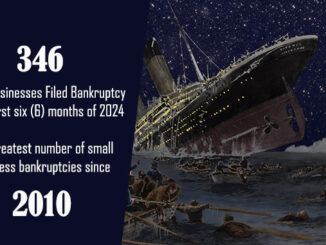
In today’s banking industry, small to mid-size bank failures present unique opportunities for factoring brokers. When these banks falter, their loan portfolios often come under scrutiny, especially if acquired by larger institutions with stringent underwriting standards. This scenario can lead to certain loans being designated as non-conforming, creating potential avenues for factoring brokers to offer their specialized services.
Understanding the FDIC’s Problem Bank List
The Federal Deposit Insurance Corporation (FDIC) maintains a confidential “Problem Bank List,” which includes banks exhibiting financial or operational weaknesses. As of 2024, this list comprises 63 banks, reflecting ongoing challenges within the banking sector. It’s important to note that the FDIC has ceased disclosing the total assets of these banks to prevent potential destabilizing effects, such as disorderly runs.

Opportunities for Factoring Brokers
When a small or mid-size bank fails, its assets, including loan portfolios, are typically acquired by larger banks. These acquiring institutions often reassess the inherited loans against their own underwriting criteria, which may be more conservative. Loans that don’t meet these standards are transferred to special assets departments for resolution, presenting opportunities for factoring brokers.
Factoring brokers can step in to assist businesses whose loans are deemed non-conforming by offering alternative financing solutions. By purchasing accounts receivable at a discount, factoring brokers provide immediate liquidity to these businesses, enabling them to maintain operations and manage cash flow effectively. This not only aids businesses during transitional periods but also allows brokers to expand their client base and revenue streams.
Leveraging LinkedIn to Connect with Loan Officers
In today’s interconnected world, social media platforms like LinkedIn have become invaluable tools for professionals seeking to expand their networks and identify new business opportunities. Factoring brokers can harness LinkedIn to connect with bank loan officers and special assets officers, especially during economic downturns when banks may face increased financial stress.
By creating targeted LinkedIn campaigns, brokers can build new connections with loan officers who might be managing distressed assets. Engaging with these professionals through thoughtful content sharing, personalized messages, and participation in relevant industry groups can lead to fruitful collaborations. This proactive approach allows brokers to position themselves as viable solutions for banks looking to offload non-performing loans, thereby turning potential challenges into mutual growth opportunities.
Strategic Approaches for Factoring Brokers
To capitalize on these opportunities, factoring brokers should establish relationships with special assets departments of larger banks. By understanding the specific challenges and criteria of these departments, brokers can tailor their services to meet the needs of businesses affected by bank failures. Additionally, staying informed about the status of banks on the FDIC’s Problem Bank List can help brokers anticipate potential market shifts and prepare accordingly.
The intersection of bank failures and factoring services underscores the importance of adaptability and strategic positioning within the financial industry. For factoring brokers, understanding the nuances of the FDIC’s Problem Bank List and the implications of loan portfolio assessments by acquiring banks is crucial. By proactively identifying and engaging with businesses affected by these dynamics, and leveraging platforms like LinkedIn to connect with key banking professionals, factoring brokers can provide valuable financial solutions, fostering resilience and growth in the broader economic landscape.


